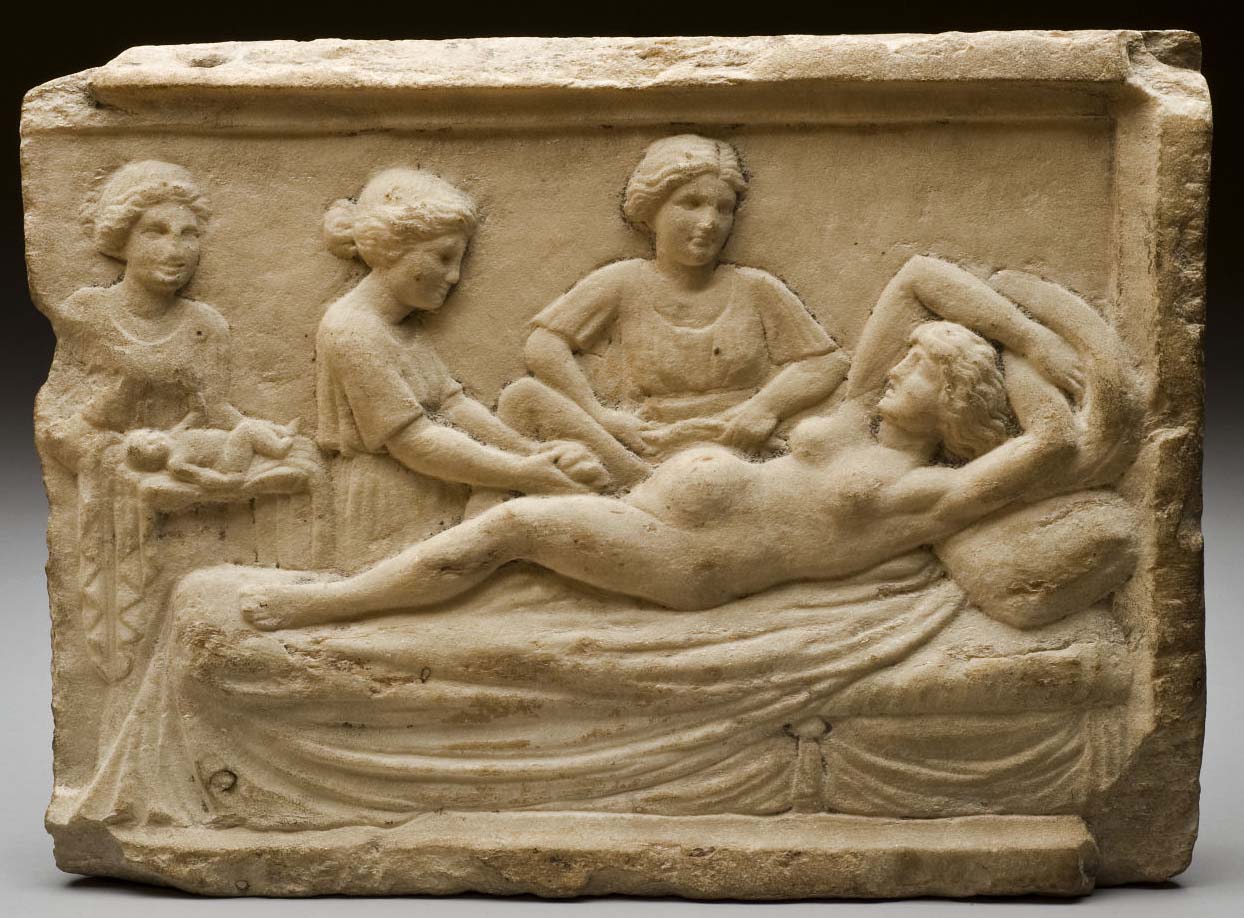Social and Cultural Life in Hellenic Society

The understanding of art, architecture and daily life style of Greek culture is a subject that arouses interest and has become the target point of large masses. Most of the names who made great contributions to humanity in the fields of philosophy, medicine, astronomy and mathematics are individuals who grew up with the Greek culture. The contributions of Mesopotamian, Egyptian and Hittite cultures to this accumulation of knowledge are so important that they cannot be ignored. With the emergence of writing in Greece in the middle of the dark age, the culture and art environment began to take shape. This accumulation, which was dependent on oral tradition before writing, became permanent through Homer and Hesiod after writing and created a common culture. Religion in ancient Greece shows itself in every aspect of life. Even when starting a new job, the gods are always consulted and their help is sought. In this society where male domination prevails and class distinction is clearly felt, wealthy families definitely have slaves. It is possible to see the traces of some traditions and activities that survive today in the Ancient Greek society. Whether living in the Ancient Age or today, people definitely act with the same instinct and can meet on a common denominator.
HOME AND FAMILY LIFE
In Athens, wealthy families often lived in the countryside, on the main road to Athens. They made their living from the lands they provided, and these lands were located near their homes. Wealthy families had slaves on the fields they owned. The man took on the task of managing the farm and spent the rest of his time in the Agora of Athens. The role of women in this cycle was to manage the housework and supervise the female servants they had in their homes. Women, who spent most of their days at the counter sewing clothes, would go to a section of their own on the upper floor of the house after the sun went down.

It would not be wrong to say that Greek society is a patriarchal society because of this lifestyle. When we look at the house plan; It is known that the bedroom, which is the private of the members of the house, is located in the back section, and the main room where the guests are received is located at the entrance of the house. The products obtained from the fields where the owners make a living are stored in the workshops surrounding the courtyard of the house.
For the Greeks, the idea of being able to continue their lineage is very important. They take care to pass on the property they have acquired in worldly life to their future family members through inheritance. Having children also means having reliable caregivers to look after them in the future. When the father, who has a say in the family and manages the business, gets old, the son takes over his responsibilities.
In the Greek world, a man’s having a child increases his prestige in society. Men without children cannot rise to high positions. Women usually gave birth at home, and during the birth, assistants called maia or experienced midwives would help them. After the child was born, a wreath of olive branches was hung on the door of the house if it was a boy, and a skein of wool if it was a girl. The baby born was introduced to the household with a ceremony held 5 days later and was taken under the protection of the gods. In this ceremony, called amphidromia (running around), the baby was turned around the hearth in his father’s arms. In this way, he was taken under the protection of Hestia (Goddess of Home and Hearth). It is obvious how important religious belief was in the lives of the Greeks.
EDUCATION IN HELEN SOCIETY

In Greek society, it is seen that children’s education is started by their families so that they can become elite citizens. Babies who began to walk and understand what was being said were given to a caregiver called paidogogos. Paidogogos were chosen from loyal slaves and were those who grew up in cultured families but lost their possessions.
While sports and music were sufficient in education at first, it was decided that they needed to learn to read and write in order to become elite citizens in the future.
Basically, children who learned to read and write would later receive music and sports training. Students who learned to read read and learned the texts of various poets, especially Homer. But the content of this education varied in wealthy families. In Hellenic society, education was carried out in Didaskeleon until the age of 12, and then in gymnasion.
In Greek culture, education was aimed at being virtuous. Oratory lessons were the most important part of education. The children of wealthy families received education in medicine, law and rhetoric. Medical education started at the age of 14 and students were able to practice their profession at the age of 18. There were large medical schools in Kos, Pergamon, Side and Aigai. In medical education, the master-apprentice relationship was dominant. There were traveling physicians and they would travel to villages/cities to treat people and make health care accessible.
WOMEN IN SOCIETY
From the Hellenistic point of view, marriage was not only a commercial agreement, but also a continuity of lineage for the married man. The lady of the Athenian house ate her meals alone in her room, and could not attend the feasts her husband gave at home. Only in difficult times could they leave the house with the permission of their spouse. Young girls and women were not active in social life, except for the festivals specially organized for them. They were masters of housework. Learning to cook and knitting and then getting married was their life cycle.

Boys from wealthy families received their education from experts in their fields, while girls were educated by their mothers and housekeepers. The training they received from their mothers consisted of learning handicrafts and the management of domestic servants. The daughter of a family belonging to the lower part of the society, on the other hand, would go out at an early age and be employed in farm and field works. While violence was a sufficient reason for women to divorce, being cheated on was not considered a reason for divorce in patriarchal Greek society. In Greece, there were also roads and streets specially made for women. There were also civil servants in these streets who were assigned to supervise Athenian women. These officers, called gynaikonomos, inspected women’s dress colors, make-up, and hair. In my opinion, these civil servants are among the best examples that reveal the place of women in Hellenic society. The Pelepponnessos wars, which drove men away from home, fortunately allowed Athenian women to open up to the outside world. With this radical change, women are now able to reveal their presence while shopping and wandering in the city agora.
BIRTH

Aristotle is against women becoming mothers at an early age. In her opinion, younger women suffered more labor pains, which often resulted in death. In ancient times, women could give birth 4-5, including miscarriage and stillbirth. Before birth, the house was pitched against demons and contamination. The woman’s umbilical cord was cut with the help of an experienced servant. When a dangerous birth was expected, support was obtained from a midwife or doctor.
MEDICINE AND TREATMENT METHODS

In Greek society, medicine was handled in a rational way and was not based on God. The main factor of the understanding was that the physicians received their training in the gymnasium. They accepted the existence of science. The individual who would become a physician would receive training in subjects such as physical education, philosophy, mathematics, music, and geography at the gymnasium. Then they would gain 6 years of experience with experienced physicians. Injuries and injuries of the Greeks, who were a warrior society, were the most important triggers in the development of medicine.
Certain treatment methods were applied to patients who consulted physicians. The tradition of sweating in the bath, cleansing the body with laxatives, dream interpretation and suggestion are widely used in this period. Apart from the treatment services in Asklepion, there were private physicians who accepted their patients into their homes and there were physicians who accepted patients in Latreion (Physician’s place).
The instruments used by the physicians were made of bronze by the people who were competent in their work. Thanks to the finds found during the excavations, it was learned that they also used tools for piercing the skull.
Treatment centers were set up near hot waters. Asclepions, which provided treatment services, also had theaters and libraries to provide morale for the patients. Being a state physician was the greatest prestige. The best physicians were chosen by organizing competitions. Persons with the title of chief physician treated patients free of charge.
Perhaps the success of Ancient Greece in the world of science, in the field of philosophy that pushes us to think and question, and in the works of art, which we admire and watch every detail with great pleasure, may be due to the fact that, as Plato said, everyone takes on tasks that suit him in his own system. Emphasizing the importance of determining the nature of people and guiding them according to their abilities, Plato believes that every person in society creates balance. This understanding should be an example for those who distinguish people according to their position in today’s society, and the labeling of children who could not discover their area of interest as unsuccessful after misdirection.
SOURCES:
https://www.greecehighdefinition.com/blog/lifestyle-in-ancient-greece



